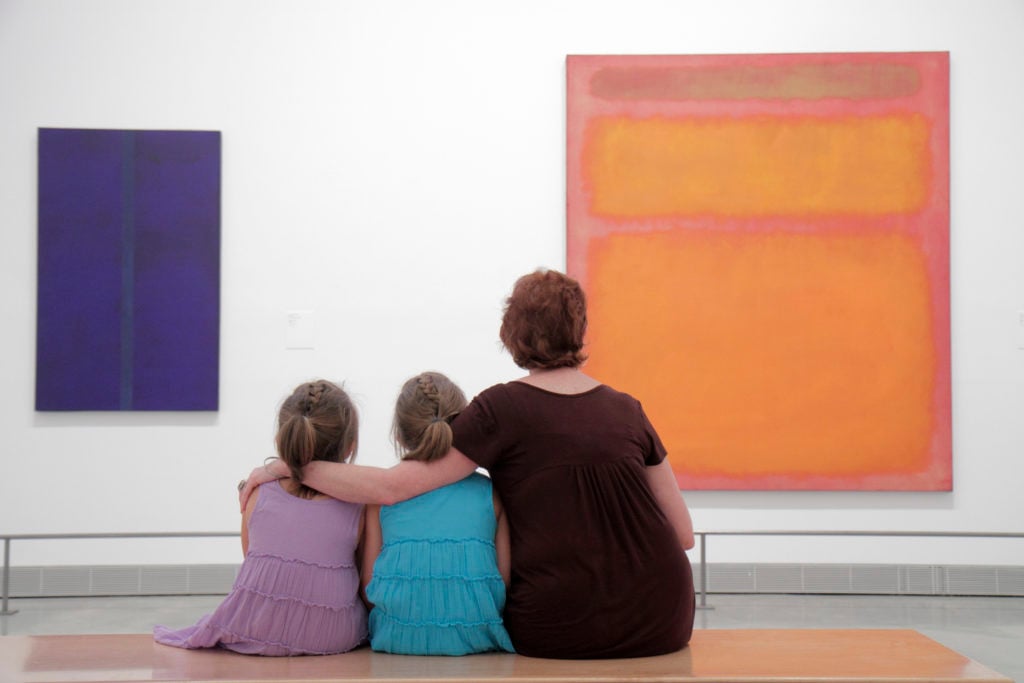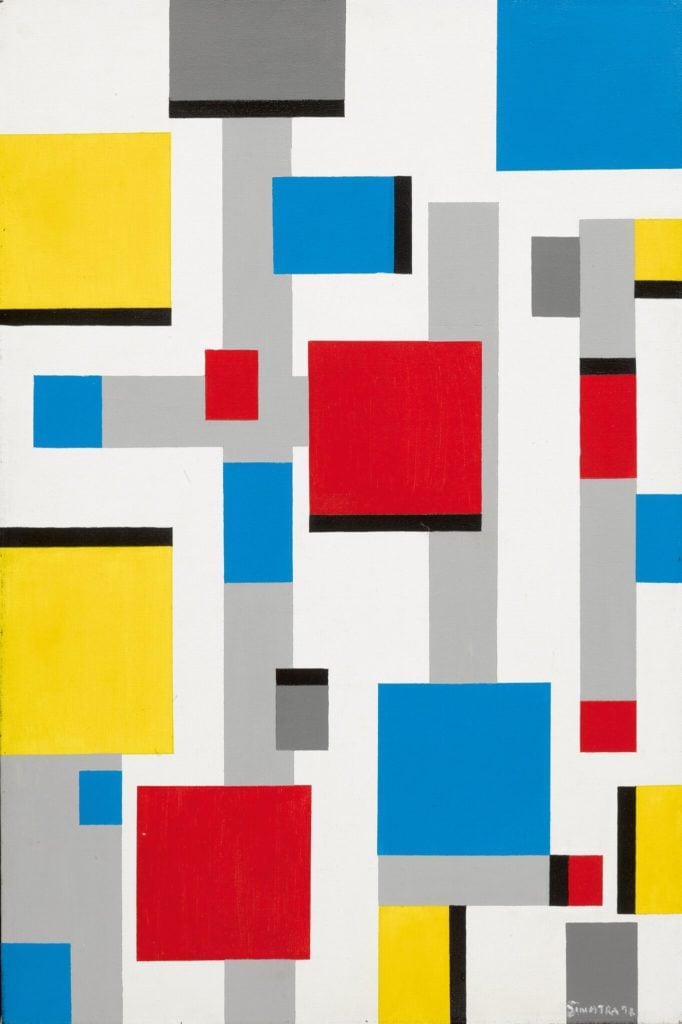Art World
Need a New Perspective on the Future? Looking at Abstract Art Can Change the Way You Think About Time, a New Study Says
Researchers show that our minds perceive representational and abstract art very differently.

Researchers show that our minds perceive representational and abstract art very differently.

Tanner West

The mind processes abstract art and figurative art very differently, and the experience of viewing one or the other can change the way you think, a new study shows.
Our minds process events and objects differently depending on how psychologically distant we perceive them to be. Near-term events and ideas are riddled with logistical concerns, while distant ones conjure more expressionistic vibes.
For instance, think about a picnic happening tomorrow versus one happening in a year.
“The picnic happening tomorrow will be represented by its concrete features: what to eat, which park to go to,” Daphna Shohamy, an associate professor of psychology at Columbia University and co-author of the study, tells Inverse. “While the picnic happening in one year will be represented by its more abstract features: how much fun you will have with friends.”
The example is similar to looking at abstract versus figurative art, the study, published this week in the journal Proceedings of the National Academy of Sciences, reveals. Stand before a figurative painting and your brain focuses on the details of the scene—who, what, how—as we try to configure the information into concrete meaning. But with an abstract canvas, we simply bask instead in the mood.

Frank Sinatra, Abstract after Mondrian (1991). Photo courtesy of Sotheby’s.
This is true both anecdotally and, it turns out, cognitively. “[A]rt has an effect on our general cognitive state, that goes beyond how much we enjoy it, to change the way we perceive events and make decisions,” Shohamy says.
For the study, the researchers asked 840 subjects to look at 21 paintings by Chuck Close, Clyfford Still, Mark Rothko, and Piet Mondrian, which ranged from figurative to semi-representational to purely abstract. The participants were invited to play the role of curator and place each artwork in a show held “around the corner” or “in another state,” “tomorrow” or “in a year.”
The subjects consistently placed more abstract paintings in the hypothetical shows held far away in the distant future, while more figurative artworks went to the exhibitions held nearby and tomorrow. The results indicate that “that abstract art was evocative of greater psychological distance,” the study says.
This suggested to the researchers that our minds perceive representational and abstract art differently. “The empirical demonstration of the effect of abstract art on our cognitive state makes it clear that this enjoyment we all feel is just part of the story,” Shohamy says. “We show that something as fluid as enjoying art has demonstrable and measurable effects on how our mind works.”